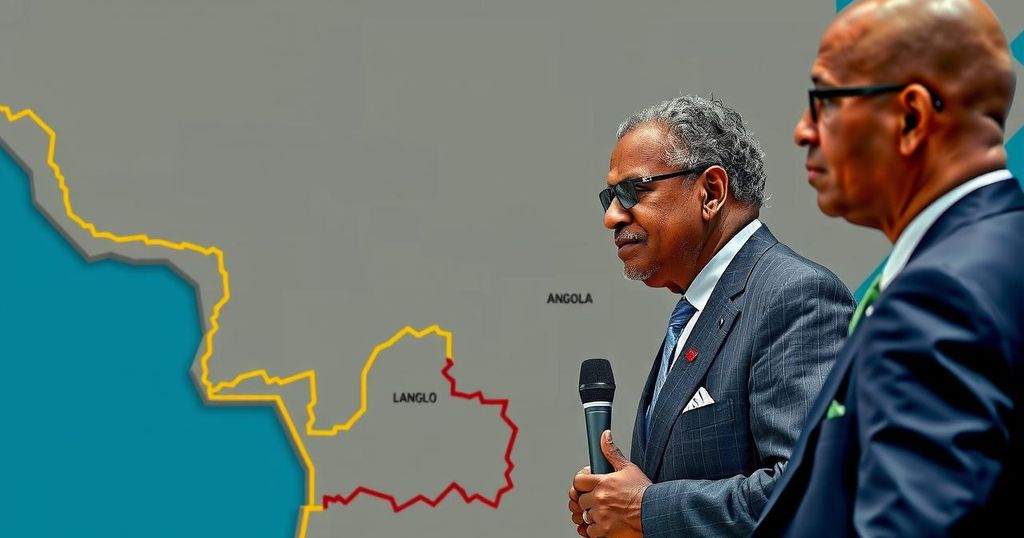President Biden’s first visit to Africa focuses on Angola, aiming to strengthen U.S. trade and counter China’s influence. Highlights include the presentation of the Lobito Corridor, a railway project linking key mineral regions to the Atlantic coast, essential for transporting cobalt and lithium. This initiative appears to be a strategic response to China’s Belt and Road Initiative, despite uncertainties regarding future U.S. leadership.
President Joe Biden is embarking on his inaugural visit to Africa as the U.S. president, with a particular focus on the oil-rich nation of Angola. This visit, which is highlighted by Biden’s intention to promote U.S.-Africa trade and infrastructure investments, is interpreted as a strategic move to counter China’s growing influence on the continent. Angola’s President João Lourenço has been pivotal in shifting the country’s foreign policy towards a stance that embraces pragmatic relationships with the West, particularly the United States.
Biden’s itinerary includes the announcement of the Lobito Corridor, an ambitious rail project designed to connect key mineral-rich regions in the Democratic Republic of Congo and Zambia to the Lobito port on Angola’s Atlantic coast. This corridor is expected to facilitate the transportation of essential minerals, such as cobalt and lithium, which are vital for battery production in electric vehicles. The U.S. involvement in this corridor is seen as an alternative to China’s Belt and Road Initiative, which has previously dominated infrastructure investments across Africa.
With the Trump administration on the horizon, there are uncertainties concerning the continuity of Biden’s investments; however, they may be seen as a vital countermeasure against China’s influence. Both President Lourenço and analysts believe that the Lobito Corridor holds promise, contingent upon the global demand for its mineral resources. Given Angola’s need for infrastructure rebuilding after decades of civil conflict, this initiative represents both an opportunity for U.S. engagement and a test of global mineral market dynamics. The project has already secured financial backing from the U.S. Government and G7 nations, indicating a collective commitment towards substantial investments in the region.
The visit of President Biden to Angola comes at a critical juncture in U.S.-Africa relations, especially due to growing concerns over China’s increasing involvement on the continent. Since gaining independence, Angola has maintained strong ties with countries such as China and Russia. However, President João Lourenço’s administration since 2017 has shifted towards greater engagement with the United States, reflecting a more non-aligned foreign policy approach. This visit aims to reinvigorate U.S. interests in Africa through significant investments in infrastructure that would help counter China’s Belt and Road Initiative while addressing local economic needs.
In summary, President Biden’s visit to Angola stands as a significant effort to enhance U.S.-Africa relations through the promotion of infrastructure projects such as the Lobito Corridor. The initiative not only symbolizes a strategic counterbalance to China’s investments but also reinforces Angola’s position as a vital ally in Africa’s socio-economic landscape. Despite potential challenges posed by the upcoming Trump administration, there remains optimism regarding the future of U.S. investments in the region and their capacity to foster local economic development.
Original Source: www.bbc.com







